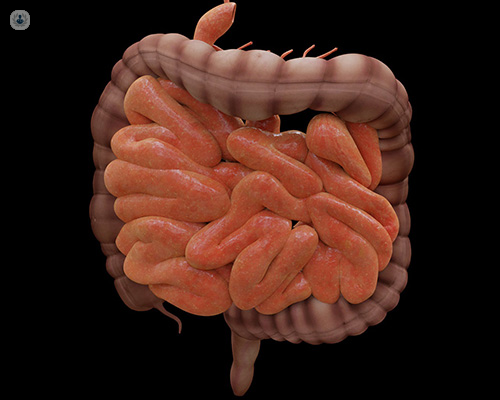How is colorectal cancer best prevented?
Written in association with:In this article below, distinguished consultant clinical oncologist, Dr Jamie Mills, provides us with an all-you-need-to-know guide with regards to colorectal cancer.

What is colorectal cancer?
Colorectal cancer, also known as bowel cancer, is a type of cancer that begins in the colon or rectum. It is one of the most common cancers worldwide, affecting both men and women, typically over the age of 50. The disease often starts as benign clumps of cells called polyps, which can develop on the inner lining of the colon or rectum. Over time, some of these polyps can become cancerous.
What causes colorectal cancer?
The exact cause of colorectal cancer is not entirely understood, but several risk factors have been identified. These include age, a personal or family history of colorectal cancer or polyps, inflammatory bowel diseases like Crohn's disease or ulcerative colitis, and certain genetic syndromes such as Lynch syndrome or familial adenomatous polyposis. Lifestyle factors also play a significant role. Diets high in red and processed meats, low physical activity, obesity, smoking, and heavy alcohol use can increase the risk of developing colorectal cancer.
What are the associated symptoms?
Symptoms of colorectal cancer can be subtle and often do not appear until the disease has progressed. Common signs include changes in bowel habits, such as diarrhoea, constipation, or narrowing of the stool that lasts for more than a few days.
Other symptoms may include rectal bleeding or blood in the stool, persistent abdominal discomfort such as cramps, gas, or pain, a feeling that the bowel does not empty completely, weakness or fatigue, and unexplained weight loss.
How effective is colorectal cancer screening, and how often should I go for screening?
Screening for colorectal cancer is highly effective and can significantly reduce mortality rates. Methods include stool tests, flexible sigmoidoscopy, colonoscopy, and CT colonography. Regular screening is recommended starting at age 50 for most people, but those with higher risk factors may need to begin earlier.
How is colorectal cancer treated?
Treatment for colorectal cancer depends on the stage of the disease. Early-stage cancer may be treated with surgery alone, which involves removing the cancerous polyps or sections of the colon. More advanced cancers may require a combination of surgery, radiation therapy, and chemotherapy. Targeted therapies and immunotherapies are also being used to treat certain types of colorectal cancer.
How is colorectal cancer best prevented?
Prevention strategies include maintaining a healthy diet rich in fruits, vegetables, and whole grains, regular physical activity, limiting alcohol consumption, avoiding tobacco use, and undergoing regular screenings.
To consult with Dr Jamie Mills today, just visit his Top Doctors profile.


